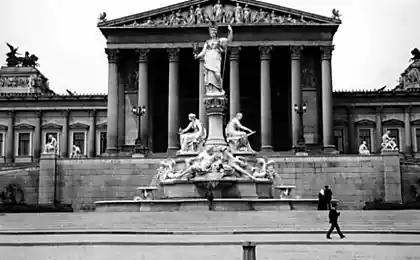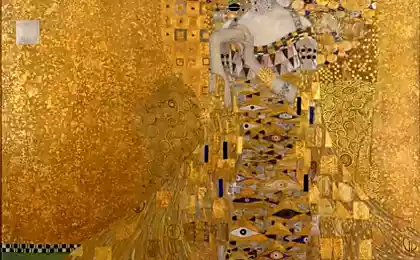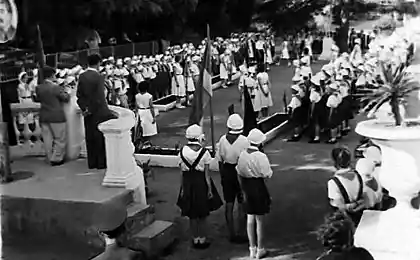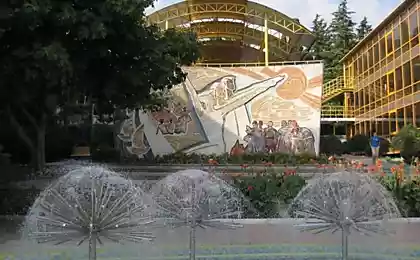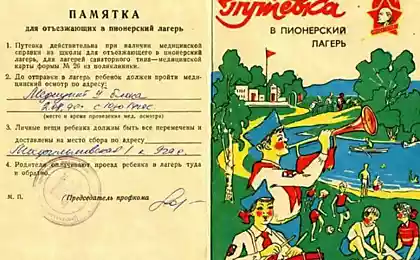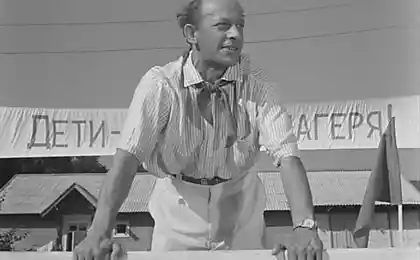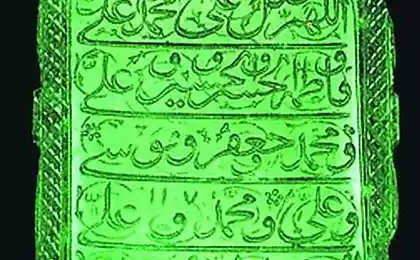394
In Austria, found the oldest Roman camp
The camp, which could serve the Emperor Tiberius, opened in the archaeological Park Carnota.
On the Danube are found the oldest Roman camp in the territory of modern Austria. It was discovered in the archaeological Park Carnota. The last was the administrative center of the Roman province Upper Pannonia.
The camp is found, when investigating the area outside the West gate Carnota. According to researchers, the camp can be dated to 6 BC. If so, it could be the winter camp of the Emperor Tiberius.

The size of the camp is equal, "six football fields" – its area reached 57.6 thousand square meters. He was surrounded by a moat. Top camp covered the remains of the settlement which was on the road in Vindobona (later Vienna).
Residues identified using GPR, aerial photography and laser scanning. They made it possible to explore a territory of 6 square kilometers and construct a three-dimensional model building of residues under the ground. By the end of 2014, archaeologists hope to explore using these technologies are also 4 square kilometers.
The study involved Institute for archaeological prospecting and virtual archaeology, Ludwig Boltzmann, and the Central Institute of meteorology and geodynamics.
Carnuntum (Carnuntum) was located at the intersection of the Danube and the Amber road, an ancient trade route in antiquity from the Baltic States in Sredizemnomorskiy region were delivered to amber.
Carnuntum was a stronghold on the Northern border of the Roman Empire. Originally it was located on the territory of the Roman province of noricum, was then the administrative center of the province of Upper Pannonia.
On the site of a Roman camp, the town grew, the population of which in the first century of our era reached 50 thousand people. In Caronte Pair was stationed the XIV Legion and Legion XV", Apollinaris", there was a Park of the Danube fleet. In the III century the city was destroyed by the Germans. Then Carnuntum was restored, but it has lost its value. Finally it was destroyed in the early middle Ages.
Carnuntum repeatedly found in the writings of ancient historians. Here the Emperor Marcus Aurelius wrote part of the essay "Reasoning about himself." In Caronte was proclaimed Emperor Septimius Severus. 308 year in the city, the Congress passed the tetrarchic – co-rulers of the Roman Empire.
In the late XIX and early XX century, archaeologists discovered in Caronte remains of amphitheatres, Roman baths and monumental arches. In 2011, in the southern part of the city was opened in the Ludus school of gladiators. It consisted of rooms that housed the gladiators and the arena for training. Researchers believe that school Caronte could rival the Ludus Magnus, the famous Gladiator school in Rome.
For content: Ludwig Boltzmann Institute for Archaeological Prospection and Virtual Archaeology,Telegraph
Source: nkj.ru







